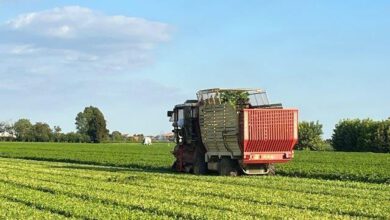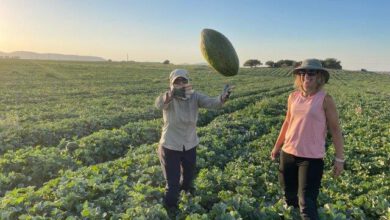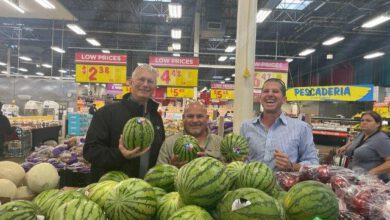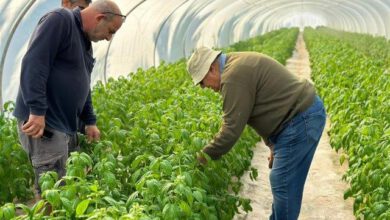Organic farmers connect Israelis with Maryland market
Organic Farm in Maryland introduce Israeli farm products to the American market
Vered Guttman
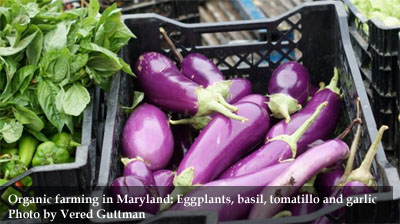
.jpg)
a two minute walk separates tanya tolchin and scott hertzberg’s little house in upper marlboro, maryland from the field they cultivate. the shady and muddy path then opens to a green wide field surrounded by tall trees, a greenhouse on the left, tomatoes on the hill to the right, and tall bushes of eggplants with violet flowers to the far side. “scott is right there, harvesting the eggplants,” tanya told me as she pointed to the bushes, where her husband’s head was peaking through.
scott plants hebrew words when he speaks. the eggplants he grows are hatzilim, and he fondly refers to the tomatoes as agvaniot. he spent a lot of time with tanya in israel, including a year in kibbutz sde eliyahu where they learned from organic farming expert mario levy how to run their farm in maryland. “we love israel and always wanted to spend more time there,” said tanya, explaining why they chose to learn organic farming in a country far away with such a different climate.
“look at the weather,” said scott. fall arrived early this year and tomatoes are done for the year, even though it’s only august. the weather in israel is more predictable.
knowing first hand the hard work of a farmer and with their strong connection to israel, the couple wanted to do something to help israeli farmers. a few years ago they launched israeli harvest, a company aimed at introducing israeli farm products to the american market. the products are sold from the company’s website and at synagogue’s fairs around the washington area. for now, they focus on israeli made olive oil, olives and dates. all three types of olive oil, the souri, kalamata and coratina (my all-time favorite, bitter with fresh grassy notes) come from makura, an organic olive farm in zichron yaakov. the souri olives, cracked and bitter, also come from the same farm. two types of dates, organic madjools and deglet noirs are grown by farms that are members of a date growers cooperative, hadiklaim.
“all farmers need diversity in their market,” explained scott. for the israeli farmer, the main market would naturally be in israel. but scott and tanya are trying to give them an option to enter the much larger american market, and to do so without too many go-betweens on the way.
in some aspects, farming in israel is easier. “in the moshav or the kibbutz, people share their equipment, they share their fields and greenhouses,” scott said. you can share equipment instead of spending so much money on equipment you only use a couple of times a year. the dry climate of the negev and the arava makes it easier for farmers to control humidity and pests (there’s only the question of water supply). in maryland, with its high humidity, conditions are significantly different.
haaretz, 23/8/13

